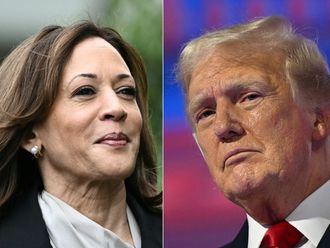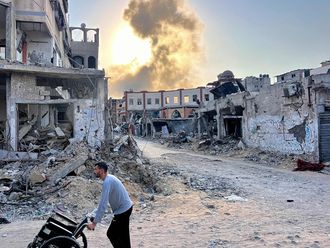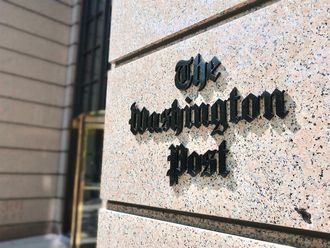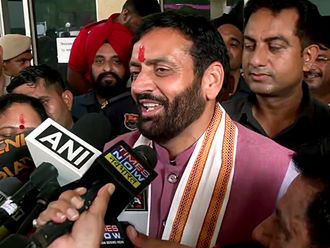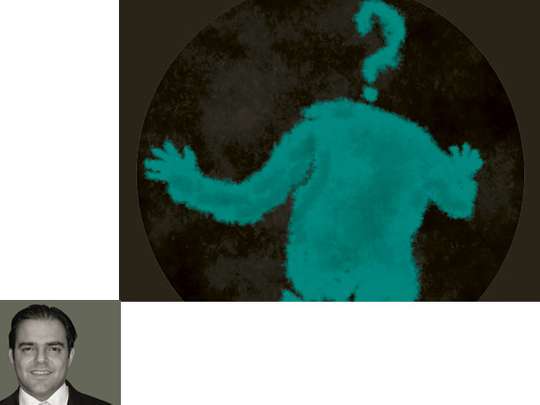
A few years back, Iran formulated a scenario for "the day after" Hezbollah leaves the scene in Lebanon, either if a new civil war breaks out or if the Syrians signed a peace treaty with Israel. Iran wanted to make sure that a Plan B was ready, automatically switching to a military group that would do the job Hezbollah had been doing, in terms of promoting and defending Iranian influence in the Arab world while "protecting" Arab Shiites.
The Iranians reasoned that the Mahdi Army would be a perfect "Hezbollah II" for Iranian influence in the Arab world, and Moqtada Al Sadr had all the basic ingredients needed to become an Iraqi version of Hassan Nasrallah. The conditions in Iraq, after all, were similar to those in Lebanon when Hezbollah was founded in the early 1980s. There was foreign occupation, a weak central government, disgruntled Shiites with big political ambitions, and plenty of arms. A serious Iranian campaign was launched to give the Sadrists a major facelift, similar to the one given to Hezbollah in 1989-1991, when Nasrallah himself was completely relocated to Tehran for crash courses in religion, politics and warfare. The Sadrist army froze its activities for six months, in order to filter undisciplined and rowdy members, its troops were trained in guerilla warfare, and Sadr himself travelled to Iran to elevate his theological standing.
For a variety of reasons, that project was put on hold, only to be resurrected today in the minds of Iranian clerics. They are now convinced of the need to establish Sadr as the supreme military force in Iraq to protect Iranian interests and "fill the gap" in case Prime Minister Nouri Al Maliki's authority snaps in Baghdad, as his American backers are now gone. The Iranians are even trying to install Ayatollah Mahmoud Hashemi Shahroudi, a former Iranian judiciary chief who is close to Ayatollah Ali Khamenei, in the holy Iraqi city of Najaf. A troika would then emerge overseeing Iranian interests in Iraq, with Shahroudi controlling religion, Al Maliki controlling politics, and Al Sadr controlling paramilitary operations.
Iranian leaders are eyeing the political vacuum that will emerge in Iraq once the Americans leave this December. That vacuum, they believe, can only be filled either by Iran or Saudi Arabia. For nearly nine years, they were willing to share the spoils of post-2003 Iraq with the Americans and the Saudis. That "concession" (from where the Iranians see things) will end in 2012. There are places in the Iraqi Sunni community, however, where Iran cannot venture, no matter how hard it tries. This is where Syria becomes vital for Iranian ambitions, due to its excellent relations with Iraqi Baathists, Iraqi tribes (which overlap between Syria and Saudi Arabia), and heavyweight Sunni politicians in the Iraqi Islamic Party and the Iraqi Accordance Front. The Iranians are afraid that a "Sunni Spring" is being prepared for Iraq in early 2012.
That spring, they claim, will be orchestrated and funded by Saudi Arabia's new Crown Prince Nayef Bin Abdul Aziz, who has an old score to settle with Iran and is bent on challenging Persian influence in the Arab world, both politically and religiously. Syria, however, is too busy with its own mess. Many of its traditional Iraqi allies have begun to part ways with Damascus, seeing that the regime is in troubled waters. Instead, these Iraqi Sunnis are now cuddling up to Saudi Arabia.
In order for Iran's ambitions to see the light, Al Maliki needs to be given Arab legitimacy through Damascus, and the Sadrists need to be empowered, in order to give Al Maliki much needed grassroots support in the Shiite community. The Mahdi Army needs to play the role that Hezbollah played in Lebanon after the civil war ended in 1991, marketing itself as a community-based and wise party focused on empowering Iraqi Shiites, against Sunni ambitions.
Syria did it for Hezbollah in 1991 and in different conditions, theoretically could have done the same for the Mahdi Army in 2012. Last week, at the urging of Iran, Maliki tried to polish his Arab credentials by offering to mediate in the Syrian crisis to compensate for the repeated failures of the Arab League.
In simple English: Iran is clueless on what to do in Iraq without Syria. Many have analysed Iran's unwavering commitment to Syria through the narrow prism of Hezbollah whereas in reality, much more is at stake for Iran if the regime collapses in Damascus. Losing Lebanon would be a joke for Iran when compared to the magnitude of losing Iraq — yet again — to Saudi Arabia. This explains why the "day after scenario" for Iraq is on everybody's mind in Tehran, but to their dismay, probably on nobody's mind in Damascus today.
Sami Moubayed is editor-in-chief of Forward Magazine in Damascus, Syria.


